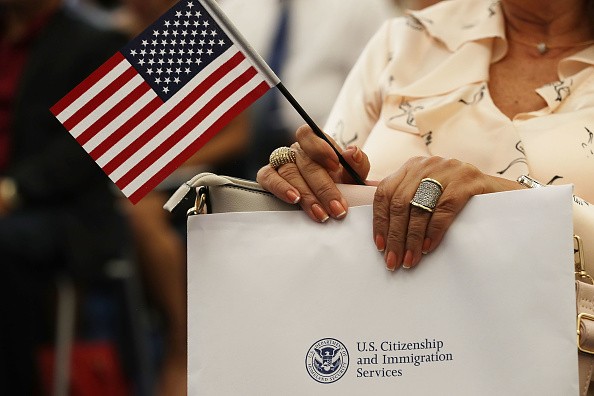New US Citizenship Test Requires Immigrants to Answer More Questions on American History, Politics
Immigrants who are seeking to become U.S. citizens will soon be required to answer more questions.

The U.S. Citizenship and Immigration Services (USCIS) announced Friday that it would be revising the naturalization civics test for the first time since 2008.
The new civics test, which is given orally during the naturalization interview, will now be expanded, with additional questions and topics about American history, politics, Constitution, wars, and the country's founding fathers.
It will soon be 128-question longer than 100 in the current test, which required immigrants to answer 10 questions and correctly answer six to pass it.
According to a CBS news report, U.S. citizenship applicants would have to correctly answer at least 12 out of 20 questions posed by the immigration officials beginning on Dec. 1.
One of the several steps that immigrants need to complete before becoming naturalized U.S. citizens is the civics test. It is a process administered by the USCIS.
Immigrants must also undergo another test to demonstrate their ability to read, write, and speak basic English.
Several immigration experts said the revised test is more complicated than the previous test and could make it harder for immigrants to fulfill their dream of becoming U.S. citizens.
For example, the new test will ask immigrants to name all three branches of the federal government instead of one in the 2008 list of questions. It is a question that even tripped up soon-to-be Alabama's Senator Tommy Tuberville.
"Our government wasn't set up for one group to have all three branches of government. It wasn't set up that way, our three branches, the House, the Senate and executive," Tuberville said when responding to a question from The Alabama Daily News about the potential negotiations in a divided Congress.
According to USCIS, the civics test was revised to ensure that it will remain an instrument to comprehensively assess the applicant's knowledge of American civic values and government.
KSTP reported that the test administered to applicants who apply for U.S. citizenship is one of several statutory requirements.
Joseph Edlow, USCIS Deputy Director for Policy, said since 2018, the agency has diligently worked on changing the naturalization test. The USCIS relies on input from experts in adult education, ensuring the process will be fair and transparent.
Edlow added that naturalization enables immigrants to be fully vested American society members, with the same responsibilities and rights as citizens by birth. Applicants are also offered a fair test that prepares them for these responsibilities.
The revised civics test will not change the passing score of 60 percent. USCIS assures that it will maintain the current guidelines for statutorily established considerations for candidates who are 65 years old and above and have at least 20 years of legal permanent residency.
Read more: Los Angeles to Pay $14 Million to Illegally Detained Immigrants
Subscribe to Latin Post!
Sign up for our free newsletter for the Latest coverage!

















